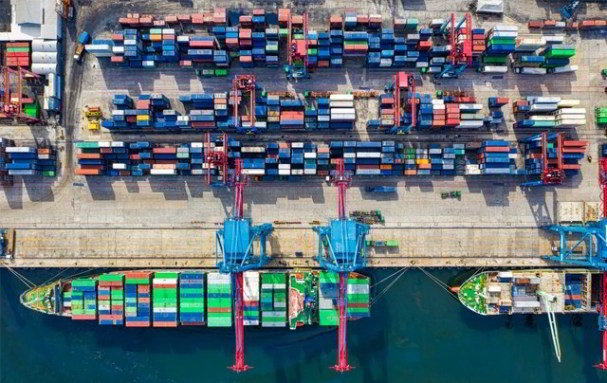Cabuyao, Laguna—20 July 2020— The global economy is currently headed to a steady decline due to the Coronavirus Disease 2019 (COVID-19), damaging industries such as tourism, retail, and particularly logistics—which includes the supply chains of almost all industries.

According to the United Nations Conference on Trade and Development, the disruption in world trade could mean a $50-billion decline in overall global exports, which would also adversely affect the Philippine supply chains. Despite responding decisively to contain the pandemic and help marginalized sectors, supply chains in the country were still impacted.
An analysis from the Center for Economic Policy and Research based in Washington, D.C also said that COVID-19 hit the heart of “factory Asia,” which consists of not only China but also Japan, South Korea, and Singapore. It was described as “supply chain contagion,” which means that the world supply chain system is exposed consequently to a “disease outbreak” due to its over-concentration.
According to Jay Marzan, Chairman of JP Marzan Project Ventures, Inc., the global economy has taken a huge blow because of the current pandemic but, this must not become a reason for us to be paralyzed with fear.
“Now, more than ever, supply chain leaders must rise to the occasion, and help fight both the pandemic and the economic decline,” Marzan said.
Strengthening the Frontlines
Among the main services that logistics companies provide are trucking, sea and air freighting, and warehousing—a clear manifestation that the logistics industry handles the movement of goods around the world.
The industry may be experiencing declines due to global responses to the pandemic, such as lockdowns and restrictions but the importance of logistics, specifically the supply chains, is still emphasized even in the crisis.
For instance, the Philippines decided recently to import millions of PPE sets worth P1.8 billion from China. They plan to send Naval ships to hasten the importation of the sets, because currently only about 70,000 PPE sets have arrived in the country which is less than 10-percent of the total amount.
The products would then be transported to the warehouse managed by the Office of Civil Defense where it will be distributed to different hospitals, however, it would take a long time to finish the transport of the much-needed medical supplies.
“It is instances like this that logistics leaders can make a difference where they can help the country’s economy and the health and safety of the front-liners during this pandemic,” said Marzan.
The Need to Adapt
According to a study by Avasant, the supply chains of multiple industries such as Energy & Resources. Healthcare & Life Sciences, High Tech & Telecomms, Travel & Transportations, Retail, and Manufacturing were hit the most in this pandemic. This is troubling since the manufacturing of the pharma sector, which has an important role now is negatively impacted.
Marzan said that communications and crisis management are incredibly important right now. Creating effective plans to enhance the supply chain and continuous dialogue between leaders is critical at this point to immediately identify any weak points that need to be assessed and addressed.
“Leaders need to make rapid and immediate decisions to sustain operations so they can maintain the successful distribution of supplies and services quickly, safely, and securely to the front-liners and people at risk of infection. Supply chains must take a holistic approach and create a strong framework,” added Marzan.
The impact of the pandemic will also have a long-term effect on not only the logistics industry but also the global economy. How the supply chains function and how people work moving forward would massively change. Long-term planning must become an important part of crisis response.
JP Marzan Project Ventures Inc. is one of the leading logistics providers dedicated to meet the challenges of the globalized market and serves as a reliable partner for the country’s economic growth.
The company started in 1972 as RV Marzan Brokerage and used to handle customs brokerage and deliveries around Luzon. Since then, it started the separate logistics company, we know today and has established itself as a reputable logistics company consistent with the best business practices.
It has also expanded its services and catered to the needs of companies across the country. Among its services include heavy-lift support, trucking, forwarding, logistics, domestic distribution, warehousing, rigging works, plant transfer, factory machine installation, powerplant assembly, project consultation, equipment rental, civil engineering, and trading of industrial equipment and services.
To know more about JP Marzan Ventures, Inc., visit its website at www.jpmarzan.com.
